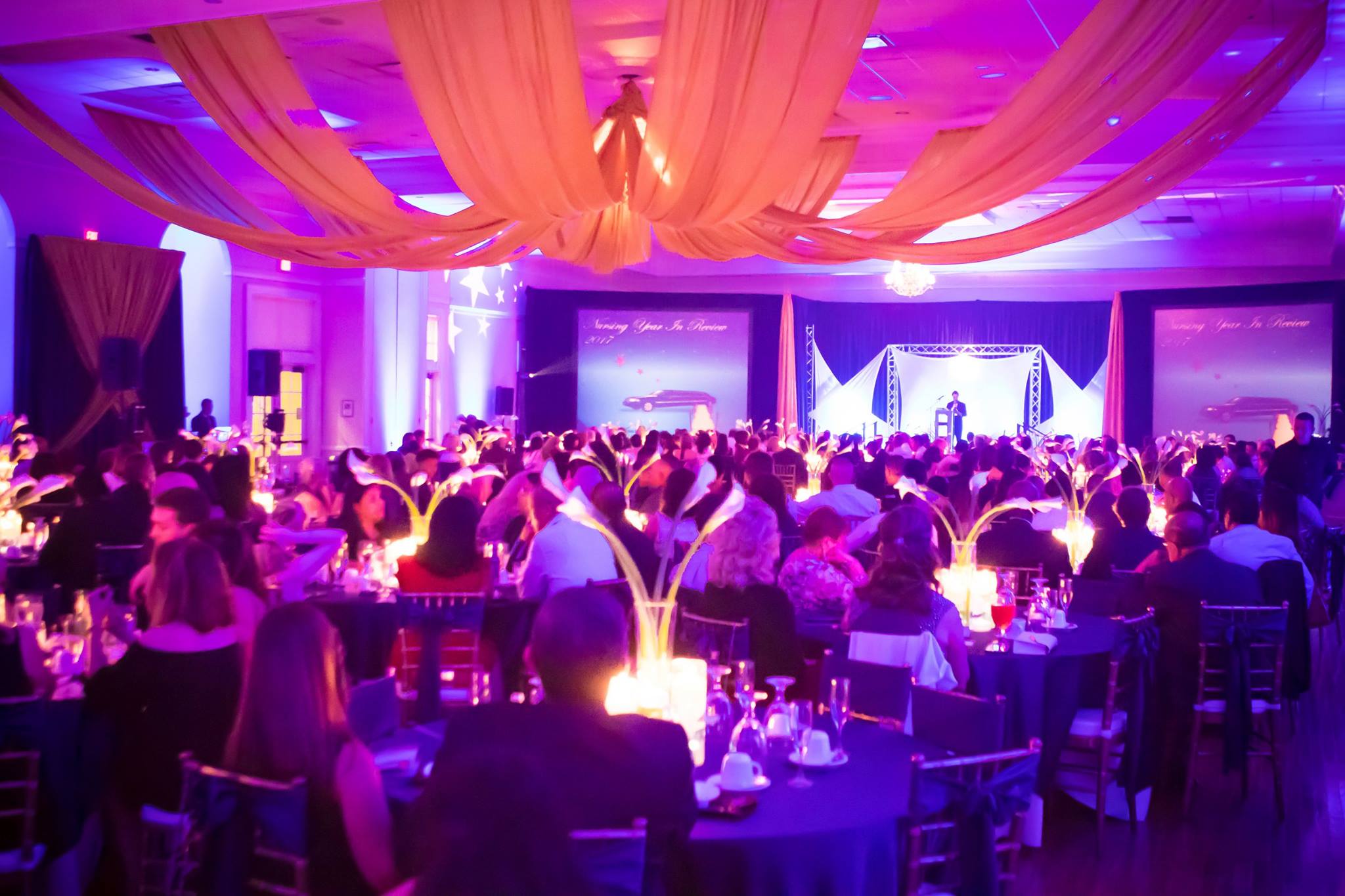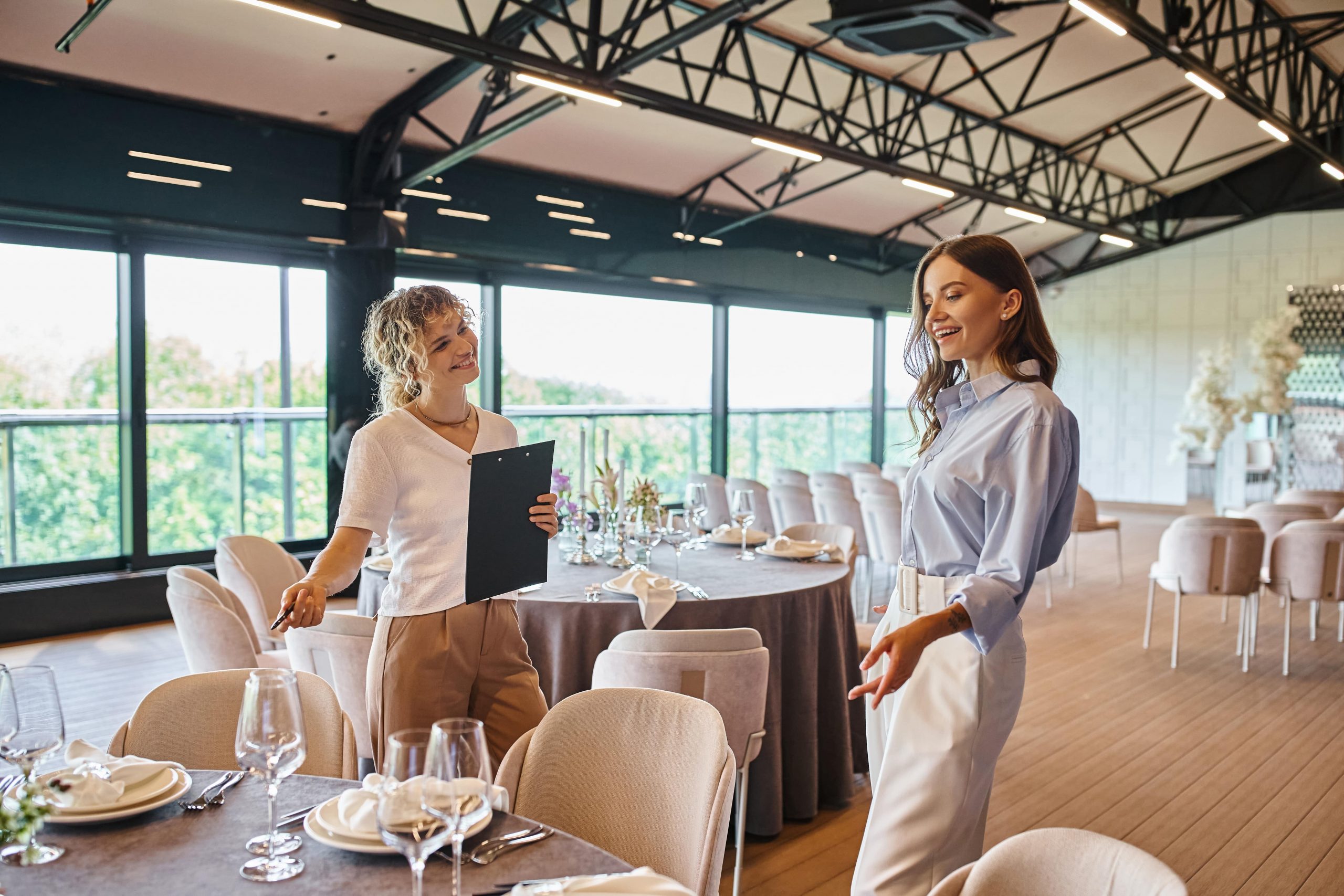Opening the Tricks of Effective Event Planning for Memorable Knowledge
Successful event planning needs a calculated strategy that surpasses plain logistics. It involves a cautious factor to consider of goals, target market, and themes. Planners have to concentrate on creating tailored experiences that involve participants and foster links. Nonetheless, the course to accomplishing unforgettable events is commonly full of difficulties. Understanding the nuances of reliable planning can disclose the possibility for absolutely impactful gatherings. What are the crucial elements that make an occasion unforgettable?
Defining Your Event Goals and Objectives
Clearness is important when specifying event goals and objectives, as it sets the foundation for a successful planning process. By articulating particular objectives, event organizers can produce a clear instructions and assurance that all efforts align with the desired end results. Objectives ought to be quantifiable and attainable, allowing planners to track progression and examine success successfully.
Determining the overarching function of the event, whether it is to enlighten, amuse, or advertise, plays a significant role in forming each choice made throughout the drawing board. Stakeholders must be included in this initial definition stage to collect varied perspectives and cultivate a sense of ownership.

Recognizing Your Audience
Comprehending the target market is vital for reliable event planning. This involves identifying target demographics and examining their preferences to tailor the event experience. By getting understanding into the audience's attributes and passions, planners can create much more pertinent and appealing events.
Recognizing Target Demographics
How can event coordinators assure their gatherings reverberate with participants? Determining target demographics is vital for crafting unforgettable experiences - event planning companies charlotte nc. Successful coordinators start by performing thorough research to recognize the age, interests, and preferences of their target market. This entails analyzing elements such as geographic location, cultural histories, and socioeconomic standing. By segmenting possible guests right into unique groups, planners can customize event components, consisting of motifs, activities, and areas, to straighten with specific group features. Engaging with prospective participants via surveys or social networks can give valuable insights right into their assumptions. Inevitably, this targeted approach enables event planners to develop individualized experiences that foster link and involvement, making certain that events not only fulfill but go beyond the wishes of their audience
Assessing Audience Preferences
As soon as target demographics are identified, the next action includes evaluating audience preferences to develop an absolutely interesting event experience. Understanding what resonates with the audience is crucial for customizing material, activities, and overall atmosphere. This procedure can be accomplished via surveys, social media sites insights, and previous event responses, which offer important data on assumptions, preferences, and passions. Event coordinators should concentrate on crucial elements such as recommended themes, prospective audio speakers, and desired networking chances. Additionally, watching on emerging fads can help in preparing for audience requirements. By leveraging this information, planners can design occasions that not only attract guests yet additionally urge energetic engagement, making sure a memorable experience that aligns with target market wishes.
Crafting an One-of-a-kind Motif and Environment
To develop a remarkable event, planners must first define the event's function, as this foundational action shapes the general experience. Aesthetic communication plays a crucial duty in establishing a style that resonates with guests, making each aspect of the design work harmoniously. Involving all detects better boosts the ambience, making certain that visitors have an immersive experience that remains long after the event wraps up.
Specifying Your Event's Purpose
While several event organizers concentrate on logistics and visitor listings, defining the event's purpose is crucial for crafting an unique theme and atmosphere. Establishing a clear purpose allows organizers to align all components of the event, from decoration to activities, with a cohesive vision. This clearness helps in selecting a motif that reverberates with participants, guaranteeing that the experience is both interesting and unforgettable. For example, a business retreat might stress synergy and technology, while a wedding might focus on love and party. By thoughtfully taking into consideration the event's intent, organizers can develop an environment that not only records the significance of the event but likewise fosters meaningful links amongst guests, boosting the overall experience.
Creating Visual Communication
Developing visual communication is crucial for transforming an event right into a memorable experience, as it unifies various aspects under a solitary, engaging theme. This process starts with a clear vision that overviews the selection of colors, design, and products. Each component needs to mirror the overarching style, whether it be a rustic wedding or a business gala. Focus to detail, such as matching table setups and signs, reinforces this unity. Lights plays an essential duty, boosting the ambience and highlighting vital locations. On top of that, including regular branding components, such as taglines and logo designs, strengthens the motif while developing an expert touch. Eventually, aesthetic communication not only captivates guests however likewise cultivates a feeling of belonging and involvement throughout the event.
Involving All Detects
Involving all senses is necessary for crafting an unique theme and atmosphere that resonates with attendees. Successful event coordinators acknowledge that integrating visual, acoustic, olfactory, responsive, and gustatory elements creates an alternative experience. Thoughtful design sets the visual tone, while thoroughly curated music adds an acoustic layer, boosting the psychological ambience. Fragrances, whether from flower plans or food stations, More Info evoke memories and stimulate conversation. Responsive experiences, such as textured products or interactive setups, welcome guests to involve physically with the environment. Ultimately, providing unique food and beverage selections can tantalize palate, leaving a long-term perception. By taking into consideration each feeling, event organizers can develop extraordinary experiences that deeply get in touch with guests, guaranteeing that the event stays unforgettable long after it ends.
Managing Logistics and Budgeting
Effective event planning hinges on the careful administration of logistics and budgeting, as these aspects are essential for making sure a seamless experience. An effective event calls for meticulous interest to information in working with transportation, location selection, and necessary tools. Coordinators must examine the needs of the event and produce an extensive list to handle timelines efficiently.
Budgeting plays a considerable duty in determining the range of the event. It includes not only assigning funds for each and every element but additionally preparing for possible expenditures and setting aside contingencies. By focusing on spending, coordinators can make enlightened choices on where to invest, whether in one-of-a-kind venues or top notch suppliers.

Engaging Visitors Throughout the Event
Exactly how can event coordinators ensure that visitors stay captivated and involved throughout the duration of an event? Involving visitors needs a thoughtful blend of interactive elements, home entertainment, and personal links. Efficient event coordinators integrate activities that motivate involvement, such as real-time surveys, Q&A sessions, or hands-on workshops.
Furthermore, producing a vivid atmosphere with songs, aesthetic displays, or themed design can boost the total experience. Offering possibilities for networking and social interaction cultivates links among attendees, making them feel more spent in the event.
Moreover, strategic usage of technology, like event applications or social networks assimilation, can keep guests notified and engaged. Planning surprise components, such as guest speakers or amusement intermissions, can likewise capture focus and maintain excitement. Ultimately, the vital depend on stabilizing structure with spontaneity, ensuring that guests really feel both amused and involved throughout the event.
Assessing Success and Gathering Comments
What approaches can event coordinators employ to analyze the success of their events and collect important responses? Coordinators frequently make use of surveys and studies distributed soon after the event to visit their website record attendees' perceptions. These tools can be customized to gauge satisfaction levels regarding different elements, such as location, audio speakers, and overall experience.
Furthermore, coordinators might conduct interviews or focus teams with select participants for even more comprehensive insights. Social media site surveillance also provides a real-time snapshot of participants' sentiments, as guests typically share their experiences online.
Assessing presence numbers and involvement metrics can better highlight locations of success and those requiring improvement. Examining the event's objectives versus actual outcomes permits planners to recognize gaps and successes, notifying future events. By using a mix of these techniques, event planners can collect detailed responses to improve future gatherings.

Regularly Asked Concerns
How Do I Pick the Right Location for My Event?
Choosing the appropriate location involves reviewing ability, place, ease of access, amenities, and atmosphere. Furthermore, considering spending plan constraints and the event's function guarantees an appropriate setting that meets guests' demands and improves the overall experience.
What Should I Consist of in an Occasion Planning Timeline?
An occasion planning timeline ought to consist of key milestones, target dates for vendor reservations, budget plan assessments, location confirmations, marketing routines, staffing arrangements, and a list for day-of logistics to guarantee a smooth implementation of the event.
How Can I Properly Promote My Event?
To effectively advertise an occasion, one ought to make use of social media sites platforms, involve regional influencers, create appealing visuals, offer early riser tickets, and preserve regular interaction through newsletters and targeted promotions to get to a more comprehensive audience.
What Are Some Tips for Handling Final Adjustments?
To manage last-minute modifications effectively, one ought to preserve clear interaction with all stakeholders, focus on jobs, stay flexible, and have contingency plans prepared (event planning companies charlotte nc). Flexibility and a calm behavior can substantially reduce tension during unforeseen circumstances
Exactly how Do I Handle Difficult Visitors During the Event?

To create an unforgettable event, planners should initially specify the event's function, as this fundamental action forms the total experience. While several event organizers concentrate on logistics and visitor checklists, specifying the event's function is essential for crafting an unique motif and ambience. Effective event organizers acknowledge that integrating visual, auditory, click here for info olfactory, tactile, and gustatory components develops an alternative experience. How can event planners assure that visitors stay captivated and included throughout the duration of an occasion? Assessing the event's objectives against actual end results enables coordinators to identify successes and voids, educating future events.